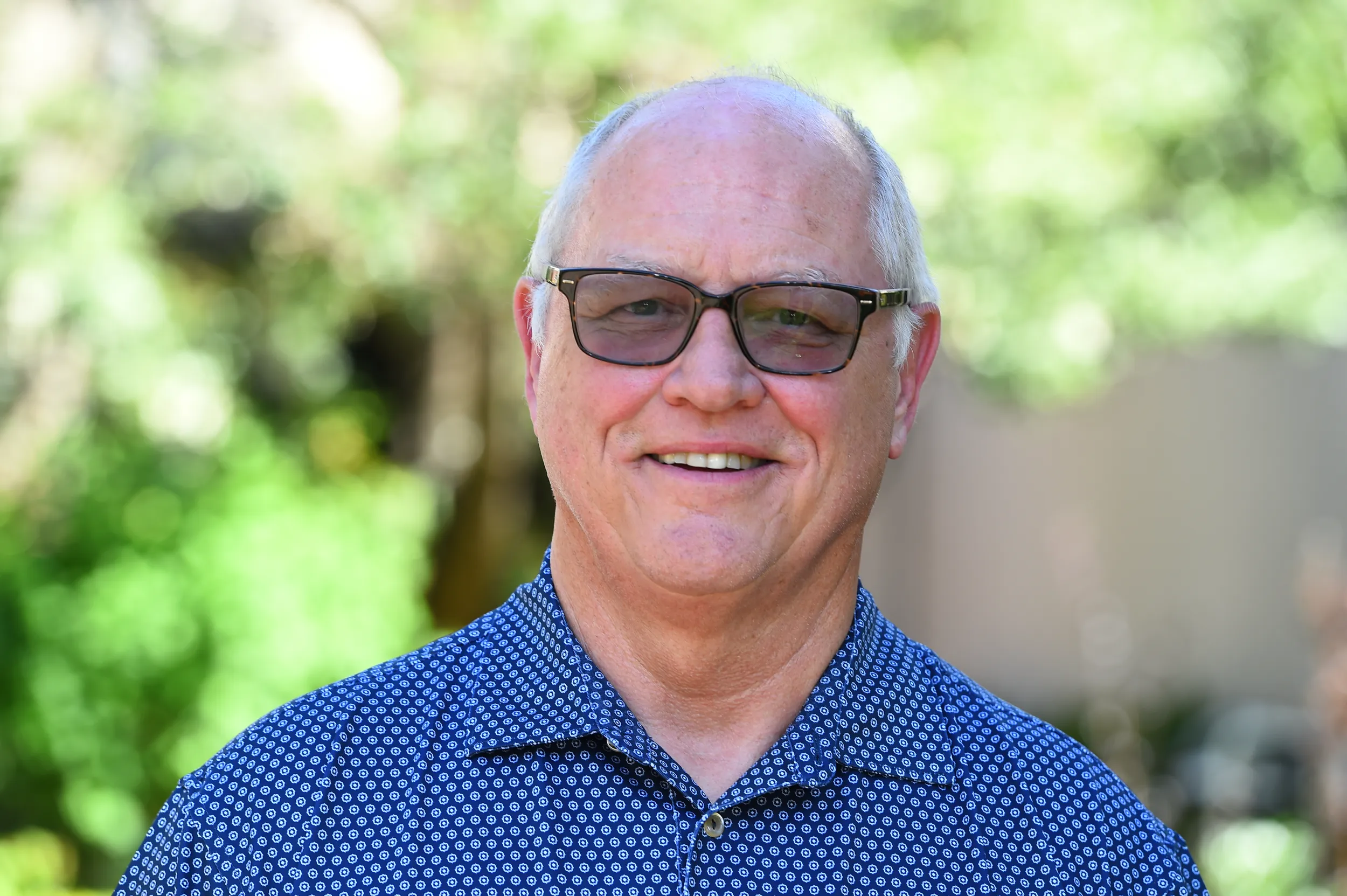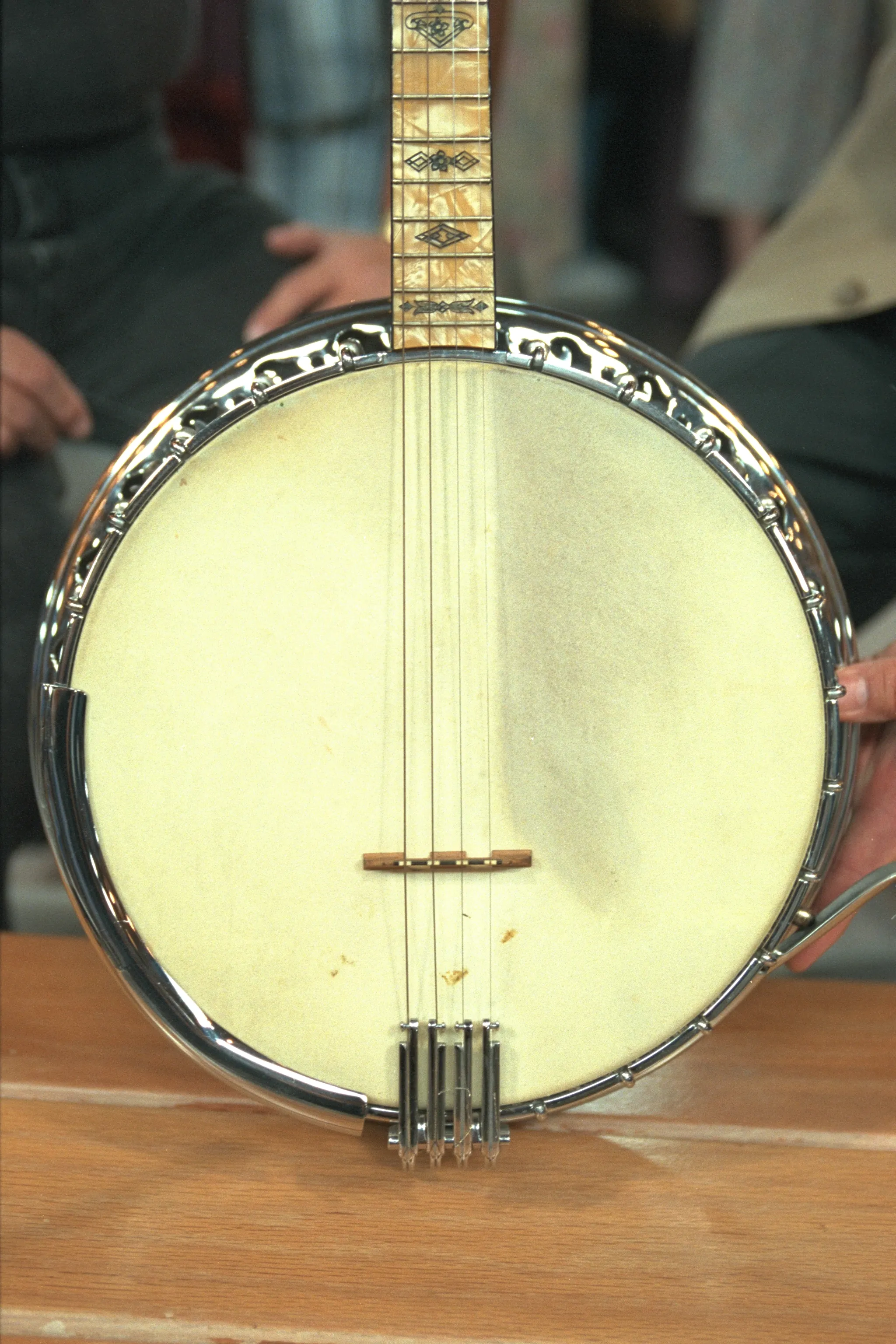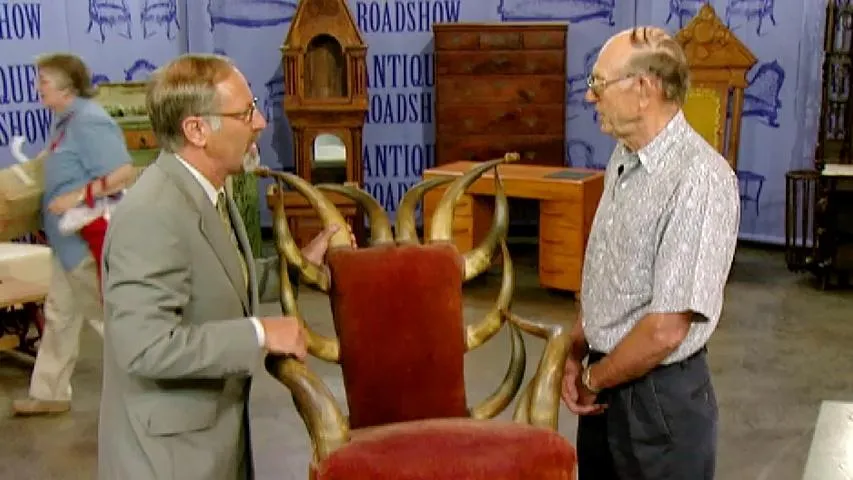GUEST: Well, this was my father's banjo, and he gave it to me right before he died. He played this during the Depression. He was a construction worker, and he played in an evening dance band in the local area here around the St. Louis area, and had a five-piece band, with a gentleman who turned out to be my uncle.
APPRAISER: Oh really, how'd that work out?
GUEST: My mom and her sister went to hear the evening dance band at one of the local fairs, and lo and behold, she ended up marrying the trumpet player in Dad's band, and of course Mom married my father.
APPRAISER: And the name of the band was?
GUEST: Larry's Rolling Stones. And then they had on their cart, "They gather no moss."
APPRAISER: Oh wow, well apparently they gathered a couple of wives.
GUEST: They did do that for sure, yes.
APPRAISER: This is a very, very unusual model of a Bacon banjo. They made them out of maple, and they were in Connecticut. But the thing that makes this so special, is all this simulated pearl work, that actually we call celluloid in the business. But it's simulated pearl, and it's got the name right here on the top, that makes it easier for us.
GUEST: Right.
APPRAISER: The Sultana.
GUEST: Right.
APPRAISER: Sultana Silver Bell, and "B" and "D" at the top. And on the back of it, the resonator has got this really nice celluloid, and there's a label right here that says, "Style No. 1, B & D" and it's got where they manufactured it in the United States. Now when your dad was playing music with this, he was playing in dance bands, and one of the reasons they kept using banjos was because they projected loudly.
GUEST: Right.
APPRAISER: And the advent of the electric guitar caused these to fall out of favor, because obviously an electric guitar was gonna make more noise in a large band than anything else.
GUEST: Before my father died, he took it down to one of the local music stores and had it appraised, or their best guess, and they thought it was in the $1,000 range. Mostly, for the parts themselves, just thinking in terms of...
APPRAISER: Not as an instrument.
GUEST: Right, yes.
APPRAISER: Right, well, fortunately for you, there's a resurgence now in using tenor banjos, and in today's market, with this year and manufacturer, I'm talking late '20s, early 1930s, in the condition that it's in with the case and everything, you probably looking at around $3,500 for this.
GUEST: Oh, great. Super! You wanna play for us?
APPRAISER: Sure.
GUEST: Great.
j& j&





